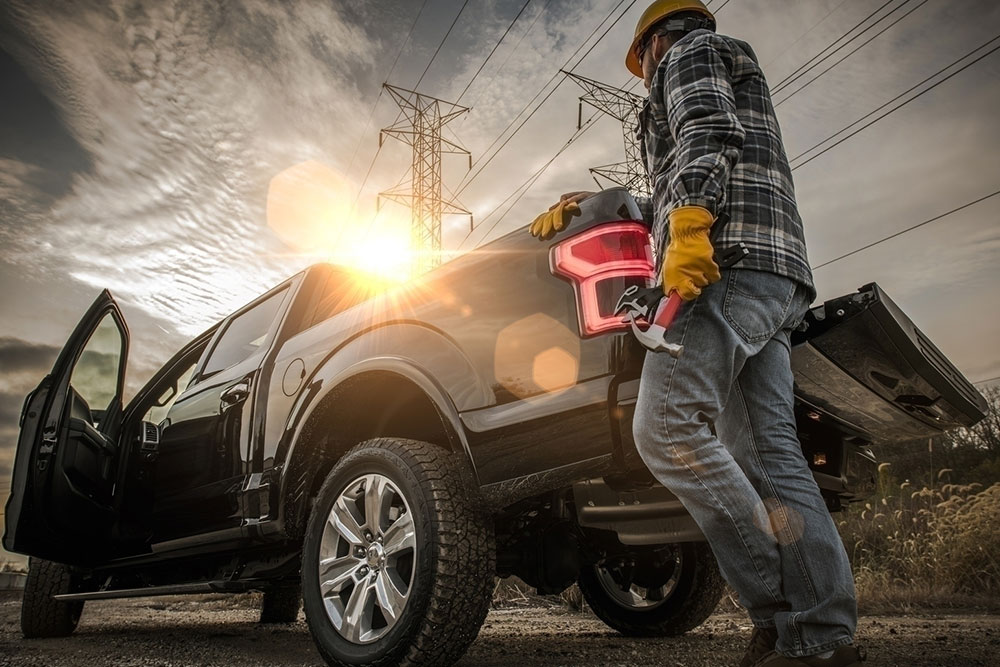8 mistakes to avoid when buying a pickup truck

Whether one is an existing truck owner or a first-time buyer, evaluating needs and must-have features are key steps for choosing the right truck. However, with the variety of options available, it is easy to rush the process and end up bringing home a vehicle that does not meet all needs. To avoid this situation and make an informed decision, here are a few mistakes to avoid while buying a pickup truck:
1. Overlooking key requirements
A purchase decision should involve more than just a quick online search for the best pickup trucks. The research should be based on one’s requirements, which are determined by evaluating lifestyle and future needs. Based on these requirements, one can review the different types of trucks, their hauling and towing capacity, personal budget, and features such as off-road capabilities, interior amenities, and safety technologies. It is also important to define needs in terms of truck configurations, engine, and payload capacity.
2. Choosing the wrong type
Pickup trucks come in different types, each with its own set of features, capabilities, and intended uses. Here is what to expect:
– Light-duty pickup trucks come with relatively small engines and load capacity and are common among service providers like gardeners, electricians, and others who use them to carry tools. This type works best in urban and suburban areas and on highways and dirt roads.
– Mid-size or medium-duty pickup trucks are more powerful and bigger in size than light-duty variants. So, mid-size trucks also have a larger cargo space but are small enough to be maneuverable.
– Heavy-duty pickup trucks are used mostly for industrial purposes or to haul large loads like boats and trailers. They usually have powerful engines like the V8.
Additionally, it is important to choose the right drivetrain, with trucks usually available in 4-wheel drive/all-wheel drive or rear-wheel drive systems. One can also choose between regular and luxury pickup trucks. Based on design, one can choose from chassis cab trucks, regular pickups, and crew cab pickup trucks. Pickup trucks are also classified based on the size of the load they carry, like half-ton pickup trucks, three-quarter-ton trucks, and one-ton or full-size pickup trucks. In recent times, electric pickup trucks have also gained popularity. So, it is important to evaluate all options and choose the right type of truck.
3. Skipping test drives
While online research helps, one still needs to check pickup trucks in person to choose the right one. Skipping the test drive can lead to unwanted surprises later. So, one should book a test drive and see how the truck maneuvers and assess its handling, smoothness of the ride, and overall comfort. These features, when examined in advance, can help one make an informed decision.
4. Not checking the credit score
The credit score affects the cost of financing while buying a truck. Higher credit scores indicate that one is less risky to lenders, and it often leads to lower interest rates. Knowing this score before one visits a dealership will help one save significantly on the loan while buying a pickup truck.
5. Ignoring total costs
One may need to shell out a lot more than just the sticker price at a dealership for a pickup truck. Usually, the overall cost includes fuel expenses, insurance, maintenance, and repairs. All of these can bump up the prices and end up extending the budget. So while setting a budget for the pickup truck, one should account for these costs.
6. Overestimating towing and payload needs
Pickup truck buyers typically need good payload and towing capacity, but they tend to overestimate the numbers. Remember that the trucks with larger capacities also cost more and come with additional maintenance and fuel costs. So, it is best to be realistic when it comes to evaluating the needs to avoid overpaying.
7. Not considering resale value
Certain pickup truck models, especially the higher trim levels, may come with a higher resale or trade-in value. So one should consider this factor before making a purchase decision. They may have a slightly higher market price, but a higher resale value also means that the cost of ownership of the truck significantly reduces.
8. Focusing on the latest models
One may believe that a new truck model is the best and most reliable choice. But, at times, an older model may meet more needs. Another advantage of considering an older model is that it has a proven track record of reliability and durability with ample customer reviews and ratings. Alternatively, one can consider well-maintained pre-owned trucks instead of new ones to save money.



